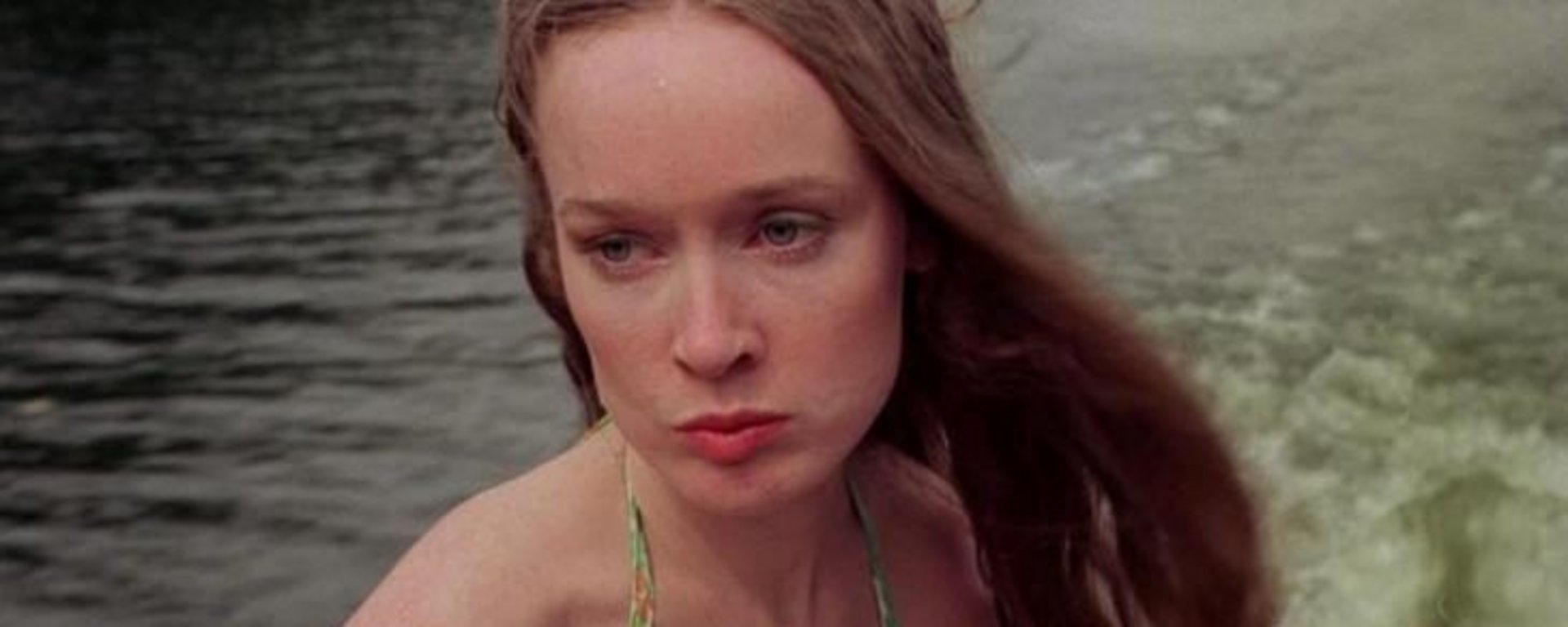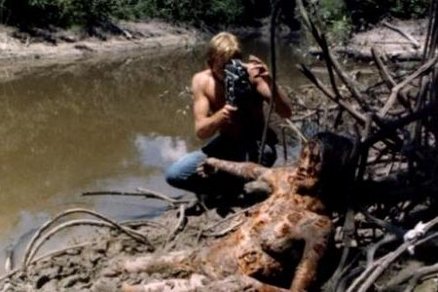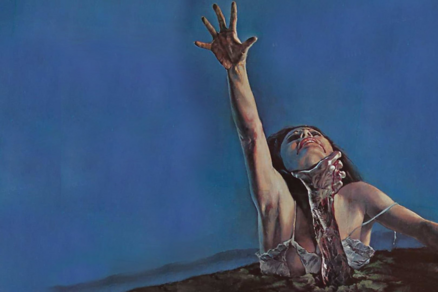
I Spit On Your Grave
Meir Zarchi's notorious 1978 'rape and revenge' melodrama was never submitted to the BBFC for cinema classification, but acquired notoriety in the 1980s as one of the most frequently prosecuted 'video nasties' (i.e. works 'of a horror nature' which the Director of Public Prosecutions considered suitable for prosecution under the Obscene Publications Act, 1959).
The film tells the story of New Yorker Jennifer Hills, who takes a vacation in the countryside where she hopes to write a novel. However, en route to her cabin, she meets a group of local men who, shortly after arrival, begin to sexually harass and intimidate Jennifer, before cruelly gang-raping her in a brutal attack. After the rape and sexual assault is over, one member of the gang is left to kill Jennifer so that the men's crimes will not be reported, but he is ultimately unable to go through with the murder. Jennifer subsequently visits each of the men, (all but one of whom thinks she is dead), and kills them in a variety of inventive ways.
I Spit on Your Grave was formally submitted for classification as a video/DVD in 2001. The film's presentation of sexual violence infringed the Board's strict policy on rape and sexual violence which states that 'Where the portrayal eroticises or endorses sexual assault, the BBFC is likely to require cuts at any classification level'.
Although it was clear that the film would need to be cut quite significantly to make it acceptable, the BBFC felt that by cutting the most eroticised elements of rape it would be possible to preserve the simple narrative of the film, leaving enough straightforward violence, (in the killing scenes at the end), to satisfy horror fans.
Indeed, under the terms of the Human Rights Act, the BBFC is required to take a proportionate approach to any perceived dangers in a work. Article 10 of the European Convention of Rights guarantees freedom of expression but does allow restrictions to be placed on such freedoms, provided they are justified and proportionate. There is a substantial body of research evidence that suggests that eroticised depictions of rape and sexual violence, (that is, depictions of rape which, because of their manner of presentation or visual details, may sexually arouse rather than horrify), may have a harmful effect upon the attitudes and behaviour of some viewers. However, rejecting the film outright would not be proportionate to the possible dangers and the BBFC always seeks to cut a work to make it acceptable where this is at all possible.
The BBFC felt that in parading and emphasising Jennifer's youthful nakedness during the rape scenes, the film presented the sexual excitement of rape from a male perspective in a manner which could excite aggressive males with a predisposition for enjoying non-consensual sex. In total, seven minutes and two seconds of cuts were required before the work could be passed 18.
In 2010, the BBFC was asked to take another look at the film, nine years after its previous classification. The BBFC carefully considered the cuts made in 2001 and concluded that they were excessive.
Although the cuts had successfully removed the most eroticised elements of nudity, they had also removed some of the horror of the rapes, most notably the scene in which Jennifer is raped over a rock, which had been deleted entirely. On this occasion, it was concluded that any material that emphasised the horrors of sexual violence, whilst not focussing principally on nudity, could be reinstated. However, the moments that seemed to focus on nudity in a prurient and exploitative manner, as well as the moments that emphasised the enjoyment of the rapists, were still subjected to cuts. In total, two minutes 54 seconds were cut in 2011.
Later in 2010, the BBFC was presented with a modern remake of I Spit on Your Grave, directed by Stephen Monroe. Interestingly, the remake featured far less emphasis on female nudity than the original. However, the contemporary setting of the remake, together with its higher production values, rendered the rape scenes equally - if not more - disturbing. After careful consideration, the BBFC classified the film 18 for cinema and DVD release after 43 seconds of cuts. Cuts were made to remove some brief elements emphasising female nudity, and to reduce some of the moments in which the audience was invited to see the attacks from the point of view of the rapists. Most notably, cuts were made to remove some of the shots in which the gang film their degradation of the woman through a camcorder. These seemed to encourage the viewer to become complicit in the attacks, rather than merely an appalled spectator. With the cuts made, the overall effect on the rape and assault scenes was to horrify and disgust, rather than to eroticise or endorse sexual violence. Nonetheless, the film was unusually strong, compared to recent mainstream horror works, and the consumer advice stated 'Contains very strong terrorisation, sexual violence, and bloody violence'.
The original uncut 1978 film was submitted again for classification in 2020. The Board of Classification reviewed the film and ultimately decided that the material continued to contravene BBFC Guidelines and policy on matters relating to sexual violence and harm. Accordingly, the Board decided to uphold the cuts issued in 2010.
Two years later, the uncut version of the film was submitted once again. This time, however, the film was submitted for advice. As the Board of Classification had only very recently reached a decision on the uncut material, the decision to uphold the 2010 cuts was once again taken. Accordingly, cuts were advised to the company. Using our advice, the company chose to pre-cut the film and then submit it once again for formal classification. The pre-cut version contained no material that we advised would require compulsory cut and was, therefore, passed 18 uncut.

